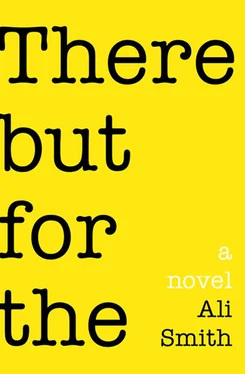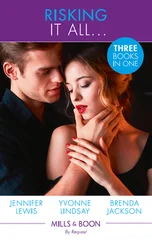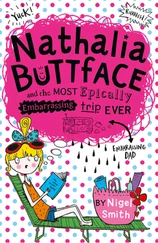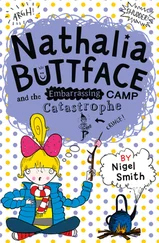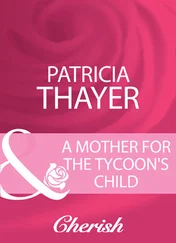Come on.
Where? the girl said.
Come on.
You can’t go anywhere like that, the girl said.
Where we going?
I’m only supposed to sit with you, the girl said. Nobody said nothing about going nowhere.
You’ve to take me.
Take you where? the girl said.
Not the Harbour.
Okay, the girl said. We won’t go there.
Come on then. Where we going?
I don’t know, the girl said.
You know.
I can’t, the girl said. I can’t do that. And what about your lunch? They’re just doing the ward. It smells nice.
Well, after lunch then.
May was pleased about that. It was mince, it smelled like, today. The mince was good here.
After lunch then.
The girl went to take the shoes out of her hands. The old hands held on to the shoes as if the shoes were everything. May gave the girl a look so direct that the girl’s face crumpled and changed.
Oh God. Okay, the girl said. We’ll try. We’ll give it a go.
After lunch. We’re off.
Where, though? the girl said again. Where do you want me to take you? Home?
Where you come from.
Me? the girl said. Are you sure?
Never more sure in all my life.
The girl looked blank.
Then she got her phone thing out and fiddled about with it.
Hi, she said. It’s me. All right. Yeah. Yeah, if you do too. Yeah, does that mean you’re off then? Right now? Listen, that’s great, because. D’you think you could do me a favour, can you pick me up? Yeah, ha ha. Brilliant. Yeah, but listen Aidan, not the bike today, can you bring the car? Just because. Uh. Uh huh. No, babe, listen. Yeah. Yeah, I’ll send you the link. Well, whenever, really. Aw thanks, babe. Hour and a half. Right. I’ll wait at, like. No, the door I came in is where the buses go to, it’s where Accident and Emergency goes in, so just turn in there. Thanks. Yeah. No, I will, I’ll be there. Okay. Love you see you wouldn’t want to be you.
Not supposed to use them things in here.
Yeah but you won’t grass on me, the girl said. You’ll need a coat. Have you got a coat?
Anything but pink.
Do I tell the nurses we’re going? the girl said.
Don’t tell nobody nothing.
(Jennifer comes into the kitchen. She is nine years old. May is having a fly cigarette at the kitchen table since Eleanor, who is always going on about how smoking kills you, is out.
Mum, she says.
What now? May says.
No, listen. I need to ask you this question. What are human beings for? Jennifer says.
For? May says. What do you mean, for?
Jennifer hangs her weight off the door handle and swings off the door.
What’s the point of human beings? I mean like what are we for? she says.
Um, May says. The point of human beings. Well. It’s, it’s for looking after each other. We’re here to look after each other.
She is about to ask why Jennifer wants to know, but Jennifer is already gone, off through the door, already clattering up the stairs.
That night when May comes up to make sure the light’s off in the girls’ room, she sees a piece of paper on the top of the chest of drawers. It’s in Jennifer’s writing. She is always getting into trouble at school for her writing not being neat enough. May holds it up under the landing light and has a good look at it. WHAT HUMAN BEINGS ARE FOR. It’s all right, the writing. It’s not as bad as all that. And she gets good reports in all the subjects, so it’s not as if neat writing is the be all and end all.
Then it is seven years later, a blink of the eye later. Jennifer has been dead one year exactly, to the day. May is in the kitchen holding a piece of paper with a child’s handwriting on it. WHAT HUMAN BEINGS ARE FOR.
For having a good time RICK
For making the world a better place NOR
For looking after each other MUM
For building things that will last DAD
But because the thing she’s holding in her hand, written in Jennifer’s hand, is just a piece of paper in the end, nothing but a piece of paper, and because Jennifer’s hand is what the word cold now means, and always will mean from now on, she opens the cupboard door. The top of the bin opens by itself when you open the cupboard door. Philip attached the bin to the door in a way that means it does this. He is handy about the house.
She folds the piece of paper again and she puts it in the bin. She closes the cupboard door and the lid, as she does, closes on top of the bin by itself.
Knock knock knock.
Someone is at the front door.
May answers it. She has to. Nobody else is in. It’s a boy, standing on the doorstep. He doesn’t say anything. Neither does she. They both just stand there. Then he holds something out for her to take and when she takes it he steps back on to the path. She steps back herself, on to the plastic runner over the carpet to keep the carpet good. She shuts the door.
She looks at what it is that’s in her hands. It is a rectangular blue box wrapped in cellophane, a box of chocolates. Milk Tray.
She watches through the frosted glass in the front door as the blurred shape of him gets smaller, then disappears.)
I took her hand. It was cold to the touch. That was the worst, the very worst.
What’s she saying? the bald man driving the car said.
She’s just talking, the girl said. Leave her alone.
The girl was squashed into the back. May was strapped into the front. After Irish-Liverpool got her into the chair the girl had wheeled her down the corridor and they had both waved cheerily back at the nurses. Then the girl wheeled May straight into the lift and pressed down, and when the doors opened they went out past the place where the shops were and the people having the teas and coffees. The girl had taken off her puffy jacket then and had put it round May’s shoulders and had run out through the main doors with almost no clothes on herself in the cold. She spoke on a phone. She lit a cigarette. She stood dancing from foot to foot out there. The cold came in round May every time the doors opened by themselves.
You’ll catch your death.
Don’t feel the cold, me, the girl said before the doors closed on her again.
The bald man wasn’t wearing a suit.
Eventually he fixed the chair somehow on to the back of the car. He made a great fuss about it. He was an awful baby.
Can’t see a fucking thing with that there, the bald man kept saying and squinting at his mirror when they were driving along.
She was in the hospital, Gracie, it was before she ran away to America, and she had a cancer down there, you know, nobody could say where, the place was not what you call mentionable, and she had to have an operation. And she nearly died from it, there was a fair chance she would. But in the newsreel she was there after it all, back on her feet, and she winked right at the camera filming her. Oh it was glorious. Right at the camera she winked. She’d come through it, she had. And there was one she did where she played a singer called Sal. That was where the song came from, the one about Sally. And in it she had to go to a posh party and sing to the rich people, you know, be their evening’s entertainment. And she called the old rich woman Lady Tissue-paper, oh it made me laugh. And she taught this old rich woman to sing the words of a common song, and told her off for pronouncing the words wrong, oh it was so funny. I’ll never forget it. And in it, I’ll never forget this either, I’ll remember it as long as I live, there was a girl in the story a bit younger than Sal, a bit naïve, and she was very poor, and her father drank, and his drinking and hitting her had made her act bad. Well, Sal, she let this girl come and live with her. Goodness of her heart, the girl had nowhere else, her father’d thrown her out, she was on the street if it wasn’t for Sal. And the girl one day got angry with Sal all because Sal was kind to her. She started to act bad, break the plates and the little ornaments in the room. It’s not like they were much. But they were all she had. And Sal stands in the room and watches the girl break all the precious cups and the things all round her. And she just says to her, you go right ahead, you break it. And here’s my watch and all. You can have it, here, take it. Do what you want with it. Because I believe there’s something that has been put in you by all that’s happened to you and it’s got to come out.
Читать дальше
